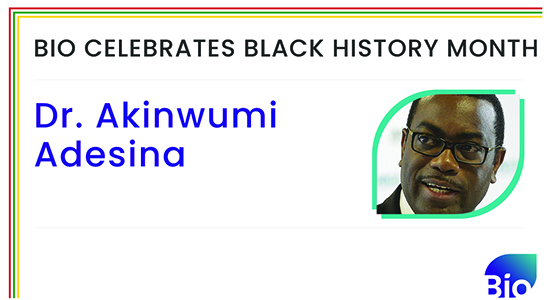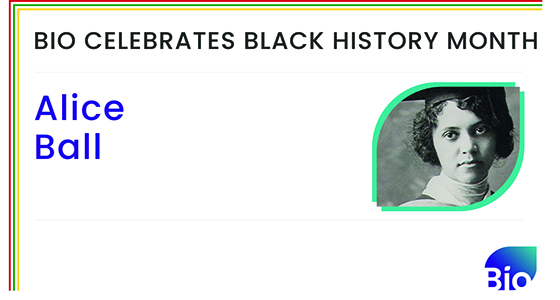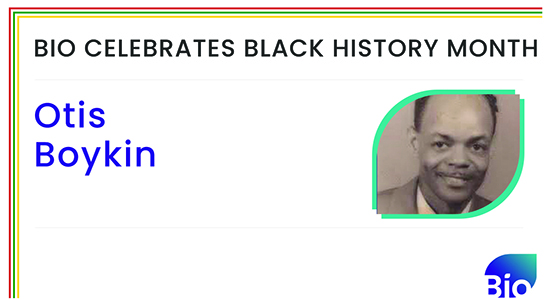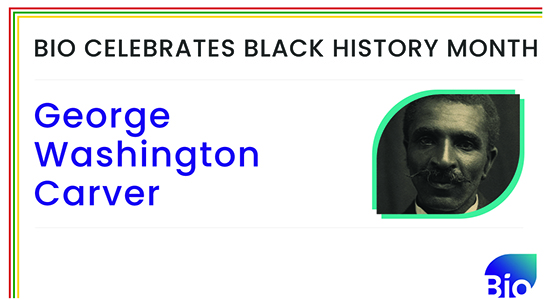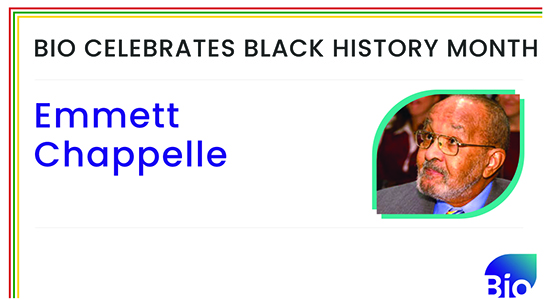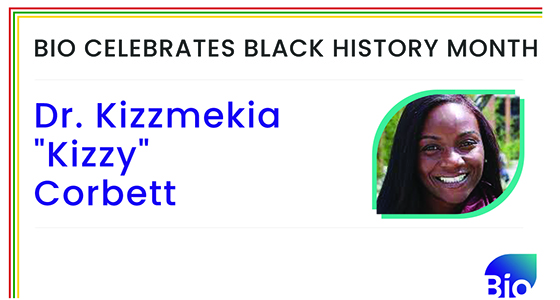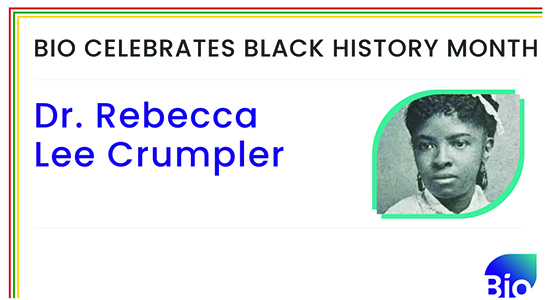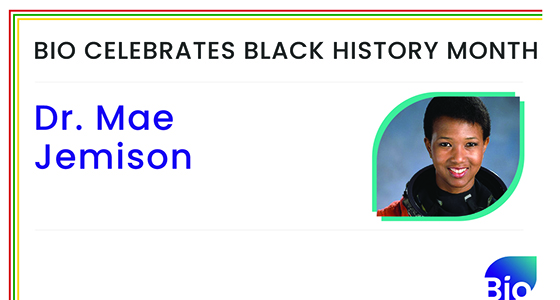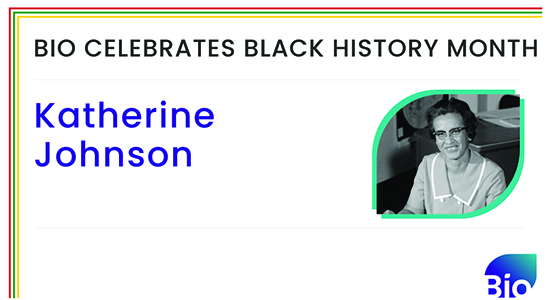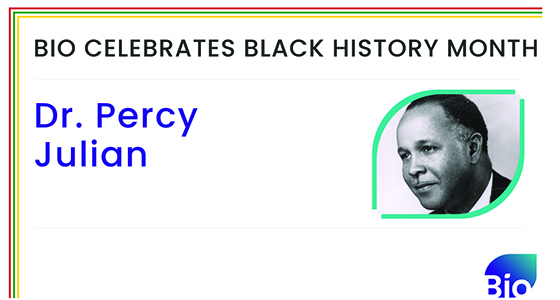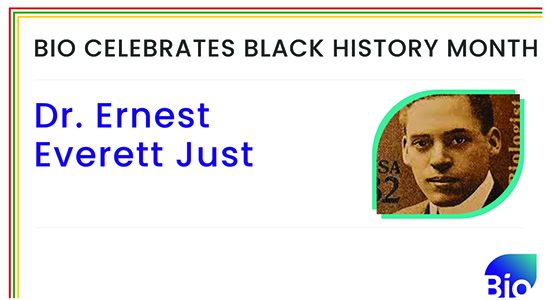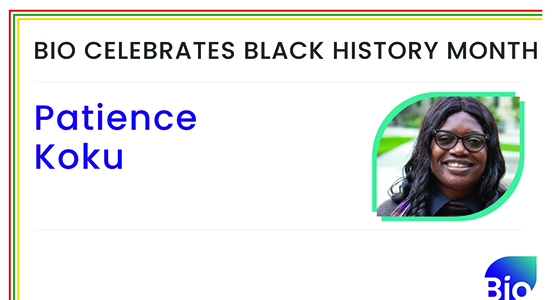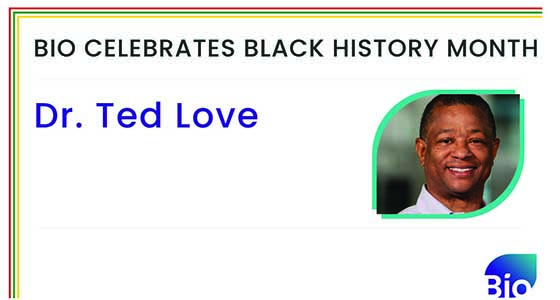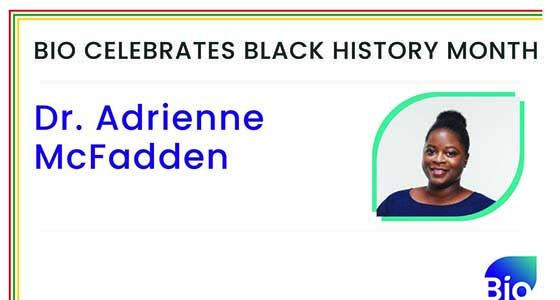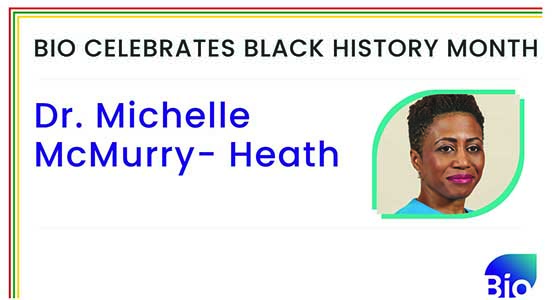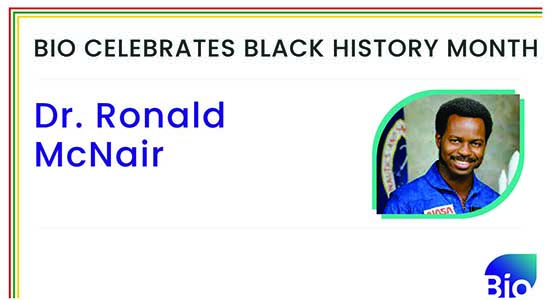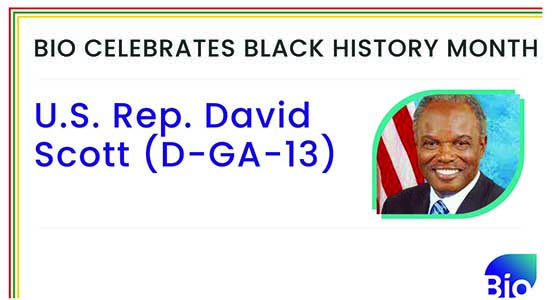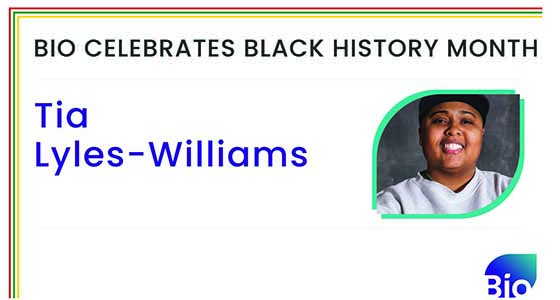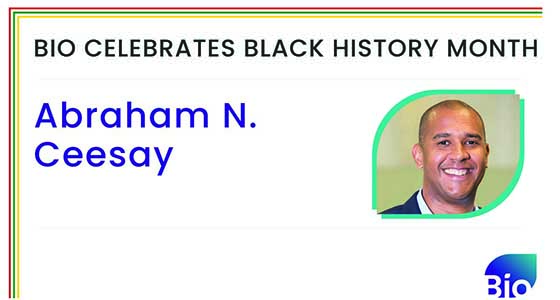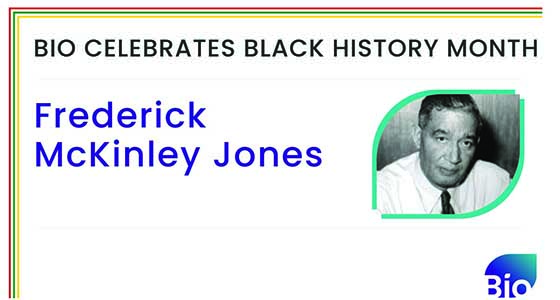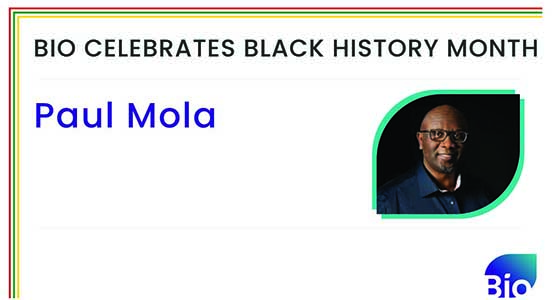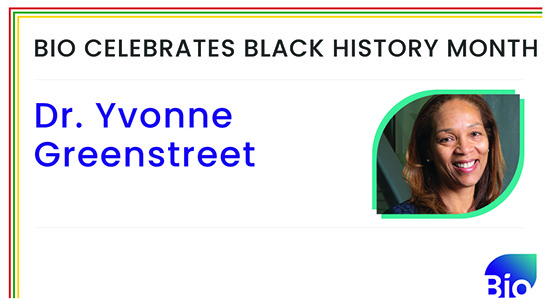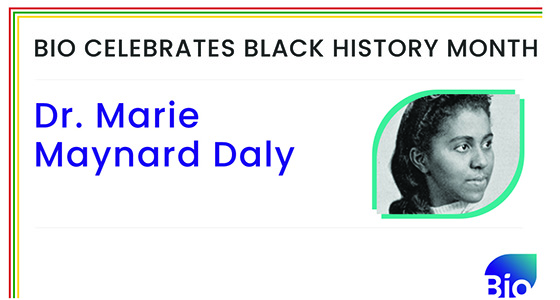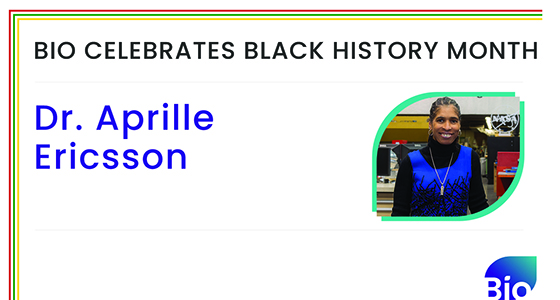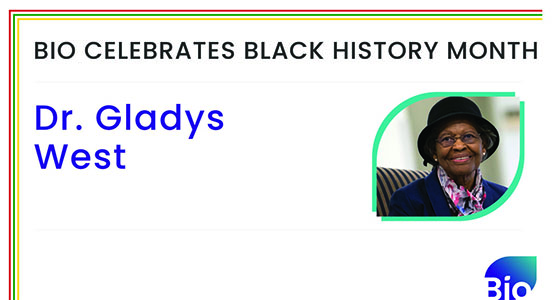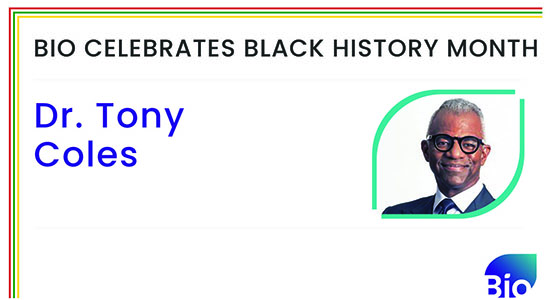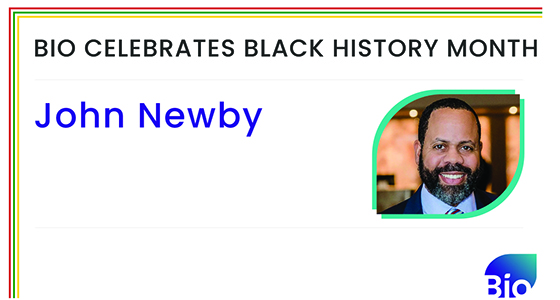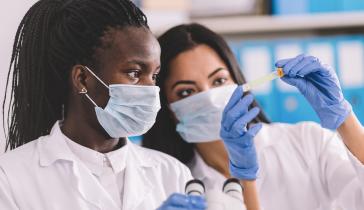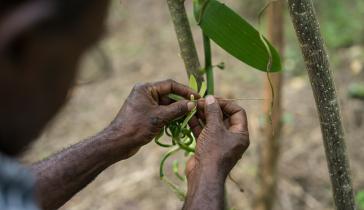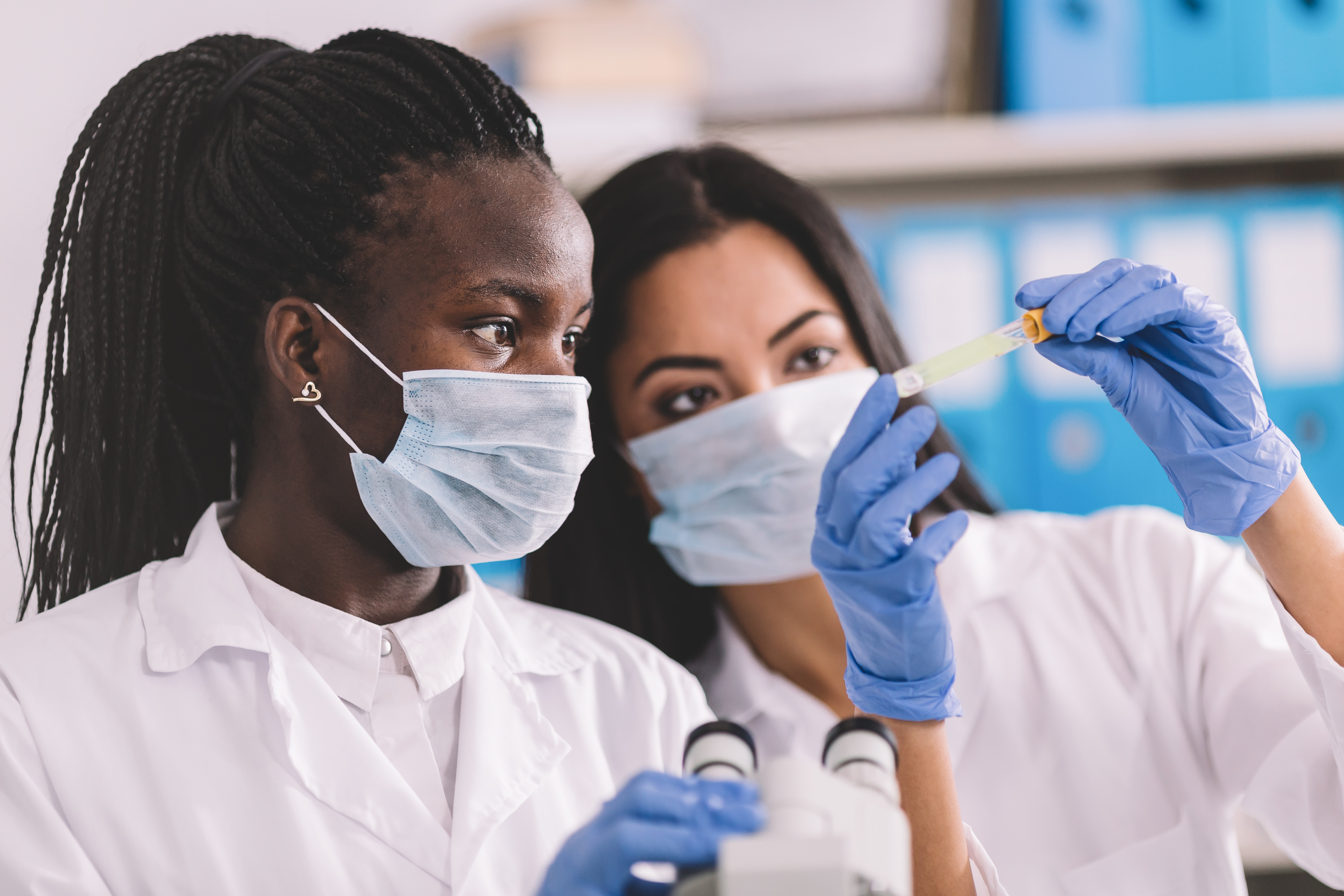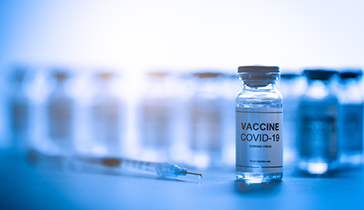
Black History Month: Black trailblazers in science and biotechnology that you need to know

Throughout Black History Month, Good Day BIO will be highlighting the accomplishments of Black trailblazers in science and biotechnology—here’s a list of 32 you should know.
1. Dr. Akinwumi Adesina
Nigerian agricultural economist Dr. Akinwumi Adesina won the 2017 World Food Prize for leading major policy change that’s helped millions of African farmers and improved nutrition across the continent. Since 2015, Dr. Adesina has served as president of the African Development Bank, where he works to end malnutrition and stunting.
2. Alice Ball
Young chemist Alice Ball achieved a number of firsts—including discovering the first treatment for leprosy. Ball was the first woman AND the first African American to earn a Master’s in chemistry from the College of Hawaii, in 1915. At 23 years old, she discovered how to safely inject chaulmoogra oil to use as a treatment for Hansen’s Disease (a.k.a. leprosy). Until the discovery of antibiotics, this was the only effective treatment for this stigmatized and lethal disease.
3. Otis Boykin
Black inventor and electronics pioneer Otis Boykin invented the control unit for the pacemaker. Boykin graduated from Fisk University and began a job testing automatic aircraft controls. He was accepted to a graduate program at the Illinois Institute of Technology but could not complete his degree because he could not afford the tuition. Over the course of his career, Boykin earned more than 25 patents, including for the electrical resistor in the control unit of the pacemaker, which allowed it to precisely regulate a person’s heartbeat.
4. George Washington Carver
George Washington Carver was an agricultural scientist and inventor (and the namesake of the BIO IMPACT Award for Innovation in Industrial Biotechnology and Agriculture). He was the first African American to earn a Bachelor of Science degree, which he put to use in developing food, medical, and industrial products made from peanuts—but he also pioneered new soil techniques like crop rotation and fertilization.
5. Emmett Chappelle
Known as the “Father of Bioluminescence,” Emmett Chappelle made many important contributions to biology and biochemistry. Born in segregated Phoenix, Arizona, Chappelle graduated at the top of his high school class and served in Italy with the U.S. Army’s 92nd Infantry during WWII. During the Space Race, Chappelle worked for NASA, where, among other accomplishments, he developed the ATP fluorescent assay, which could be used to detect microbial life in the soil on Mars.
6. Dr. Kizzmekia "Kizzy" Corbett
The development of the Moderna COVID-19 vaccine is in large part thanks to a Black woman named Dr. Kizzmekia "Kizzy" Corbett. Just 34 years old when the pandemic began, the National Institutes of Health (NIH) immunologist co-led the team that worked with Moderna to develop the COVID-19 vaccine. Follow Dr. Corbett on Twitter @KizzyPhD.
7. Dr. Rebecca Lee Crumpler
Dr. Rebecca Lee Crumpler was the first Black woman to earn an M.D. in the United States, as well as one of the first Black medical authors in the country. As a doctor, she was devoted to “caring for freed slaves who would otherwise have had no access to medical care,” according to NIH.
8. Dr. Charles R. Drew
Washington, D.C. native and Howard University professor Dr. Charles R. Drew is known for his pioneering work to develop blood banks and fight racial discrimination in blood donation. He was the first Black student to earn a Doctorate of Science in Surgery at Columbia University in New York and led the first American Red Cross blood bank for the U.S. military—where he, as a Black man, was prohibited from donating.
10. Dr. Mae Jemison
Dr. Mae Jemison was the first African American woman to travel into space in September 1992 as a member of the first group of astronauts to go to space after the Challenger exploded. She graduated high school at 16, and attended Stanford University and Cornell Medical School, where she earned her Doctorate in 1981. She’s now heading a team researching interstellar travel.
11. Katherine Johnson
Katherine Johnson was a NASA mathematician calculated critical equations for the United States’ first human spaceflights. She graduated from West Virginia State College with honors in mathematics, and was “handpicked to be one of three black students to integrate West Virginia’s graduate schools,” says NASA. She was brilliantly portrayed by Taraji P. Henson in the Academy Award-nominated 2016 film, “Hidden Figures.” Johnson passed away in February 2020, at the age of 101.
12. Dr. Percy Julian
Black chemist Dr. Percy Julian overcame racial discrimination to pioneer the synthesis of plant chemicals to make medicines—including the chemical synthesis and industrial-scale production of progesterone, estrogen, and testosterone, which led to medical breakthroughs like steroids and birth control pills. He was the first African American chemist inducted into the National Academy of Sciences.
13. Dr. Ernest Everett Just
Dr. Ernest Everett Just was a gifted scientist who made groundbreaking discoveries about cells and fertilization—and escaped Nazi-occupied France. Born in 1883 in Charleston, SC, Dr. Just graduated magna cum laude from Dartmouth with a degree in zoology and magna cum laude from the University of Chicago with a doctorate in experimental embryology. In 1940, Dr. Just was conducting research in France when the German Nazis invaded. He was imprisoned, but luckily set free within a few months.
14. Patience Koku
Patience Koku is a Nigerian fashion entrepreneur turned farmer—and an advocate for ensuring smallholder farmers have access to new technologies and learning opportunities. Koku is CEO of Replenish Farms in Nigeria, which produces rice, soy, maize, and vegetables. She has called for the use of biotechnology like genetically modified crops to help resist pests while reducing pesticide use.
15. Henrietta Lacks
In 1951, Henrietta Lacks was diagnosed with cervical cancer at Johns Hopkins Hospital. Tragically, she passed away on October 4, 1951, at the age of 31—but some of her cells lived on. Unbeknownst to her or her family, a sample of her cells had been sent to a nearby tissue lab, where instead of dying quickly, they “doubled every 20 to 24 hours” according to Johns Hopkins. Nicknamed “HeLa” cells, they’re still used to study cancer without experimenting on humans.
The hospital admits that they should have done more to inform Henrietta’s family about the use of her cells. They’ve since worked with them as well as the National Institutes of Health (NIH) “to help broker an agreement that requires scientists to receive permission to use Henrietta Lacks’ genetic blueprint, or to use HeLa cells in NIH funded research.”
16. Dr. Ted Love
Dr. Ted Love is the President and CEO of Global Blood Therapeutics (GBT), which developed the first FDA-approved drug targeting the underlying cause of sickle cell disease rather than just its symptoms. He’s had a long career in the biotechnology and pharmaceutical industry, at Onyx Pharmaceuticals, Inc., Nuvelo, Inc., Theravance, Inc., and Genentech. He holds a B.A. in molecular biology from Haverford College and an M.D. from Yale Medical School, and completed a residency in internal medicine and fellowship in cardiology at the Massachusetts General Hospital.
17. Dr. Adrienne McFadden
Dr. Adrienne McFadden is the Vice President of Medicaid Clinical and the Chief Population Health Officer for National Medicaid Programs at Humana. Previously, Dr. McFadden was Director of Health Equity at the Virginia Department of Health, where she advised the State Commissioner of Health on minority health, rural health, and primary care programs.
18. Dr. Michelle McMurry-Heath
Dr. Michelle McMurry-Heath is the President and CEO of the Biotechnology Innovation Organization (BIO), and the first Black woman to lead the organization. The common thread in McMurry-Heath’s work across academia, government, and industry has been her focus on broadening access to scientific progress so more patients from diverse backgrounds can benefit from cutting-edge innovation. Driven by her own past family experiences navigating clinical trials and funding uncertainties within the rare disease community, McMurry-Heath calls “the distribution of scientific progress the social justice issue of our age.”
The first African American to graduate with an M.D./Ph.D. from Duke’s Medical Scientist Training Program, Dr. McMurry-Heath has held leadership roles at Johnson and Johnson as well as the U.S. Food and Drug Administration (FDA) under President Barack Obama.
19. Dr. Ronald McNair
Ronald E. McNair was a Black NASA astronaut—the second to fly to space—who died in the Space Shuttle Challenger explosion in 1986 at age 35. Despite growing up in the difficult environment that was a racially segregated South Carolina—where as a child, he stood up for his rights in a racially segregated library—he went on to receive a Ph.D. with honors in physics from MIT.
20. U.S. Rep. David Scott (D-GA-13)
U.S. Rep. David Scott (D-GA-13) is the current and first Black Chairman of the U.S. House Agriculture Committee. Since 2002, he’s served as U.S. Congressman for Georgia’s 13th District, which covers six counties in Metro Atlanta. He’s long focused on equity and racial justice in agriculture, and BIO has worked with him on the development of clean energy programs.
21. Tia Lyles-Williams
Tia Lyles-Williams is the founder and CEO of LucasPye Bio, which is a Contract Development Manufacturing Organization (CDMO) that assists private sector entities accelerate the clinical development of biologic drugs. Lyles-Williams is the first queer Black woman to own and lead a biopharmaceutical manufacturing company such as LucasPye Bio.
22. Abraham N. Ceesay
Abraham N. Ceesay is the President of Cerevel Therapeutics, a clinical-stage biopharmaceutical company that focuses on developing new therapies to treat disorders of the central nervous system (CNS). Ceesay previously served as CEO of Tiburio Therapeutics, which resulted in the investigational new drug application enablement for a rare neuroendocrine tumor. Prior to his tenure at Tiburio Therapeutics, Ceesay served as chief operating officer at scPharmaceuticals, where he developed and led all operational and commercial aspects of the company. Ceesay serves on the Board of Directors for Life Science Cares and Camp Harbor View.
23. Frederick McKinley Jones
Frederick McKinley Jones was the first African American to be awarded the National Medal of Technology and Innovation for his groundbreaking work in inventing the first successful mobile refrigeration system in 1938, which revolutionized the transportation of food and other perishable goods. Jones founded Thermo King, one of the most successful manufacturers of mobile temperature control systems.
24. Paul Mola
Paul Mola is the founder, President, and CEO of Roswell Biotechnologies, Inc. Mola founded Roswell after more than 20 years in the life sciences sector. Roswell has developed the first molecular electronics chip and the Roswell Molecular Electronics (ME) Platform for biosensing applications. Previously, Mola was Head of Global Solutions at Human Longevity, Inc., working to establish international precision medicine partnerships. Prior to that, he spent over a decade at Life Technologies / Applied Biosystems (now part of ThermoFisher Scientific). Mola serves on the board of Biocom California, the association representing the California life science industry.
25. Dr. Jen Nwankwo
Dr. Jen Nwankwo is the founder and CEO of 1910 Genetics, a biotechnology company which integrates AI, computation, and biological automation to speed up the design of small molecule and protein therapeutics. Nwankwo was an HHMI Predoctoral Fellow at the medical schools of Harvard University and Tufts University.
26. Dr. Yvonne Greenstreet
Dr. Yvonne Greenstreet is the CEO of Alnylam Pharmaceuticals, Inc. which is advancing the development and use of RNAi (RNA interference) therapeutics with a focus on genetic medicines, cardio-metabolic diseases, infectious diseases, and central nervous system (CNS) and ocular diseases. Upon becoming CEO of Alnylam, Dr. Greenstreet became one of the six women worldwide heading up a pharmaceutical company worth over $5 billion. Dr. Greenstreet first joined Alnylam in 2016 as Chief Operating Officer before being promoted to President and COO in 2020, and CEO in 2021. She is a member of the Scientific Advisory Committee of the Bill and Melinda Gates Foundation and a member of the Discovery Council of Harvard Medical School. In addition to her medical degree from the University of Leeds in the United Kingdom, Greenstreet holds an MBA from INSEAD Business school in France. Greenstreet was named one of Boston Business Journal’s Women Who Mean Business in 2021.
27. Dr. Marie Maynard Daly
Dr. Marie Maynard Daly was the first African American woman in the United States to earn a doctorate in chemistry. Daly made history when she earned her Ph.D. in chemistry at Columbia University in 1947, only three years after enrolling in the university’s doctoral program. Beyond her career in research and education, Daly was a lifelong advocate for increased opportunities for enrolling minority students in medical schools and graduate programs in the sciences.
28. Dr. Aprille Ericsson
Dr. Aprille Ericsson has broken many barriers over the course of her illustrious career, as both the first African American woman to earn a Ph.D. in Mechanical Engineering from Howard University and the first African American woman at NASA’s Goddard Space Flight Center to earn a Ph.D. in Engineering. Ericsson is the New Business Lead (NBL) for the NASA Goddard Space Flight Center Instrument Systems and Technology Division. She has received numerous honors over the course of her career, including NASA’s Exceptional Achievement in Outreach Award.
30. Dr. Gladys West
Dr. Gladys West changed the world through her mathematical modeling work contributing to the creation of the Global Positioning System (GPS). West was the second Black woman to ever to be employed by the Naval Surface Warfare Center Dahlgren Division. For her groundbreaking work over the course of her career, West was inducted into the United States Air Force Hall of Fame.
31. Dr. Tony Coles
Dr. Tony Coles is the CEO and Chairperson of the Board of Directors at Cerevel Therapeutics. Dr. Coles previously co-founded and served as the Chairperson and CEO of Yumanity Therapeutics, LLC, a clinical-stage biopharmaceutical company specializing in Alzheimer’s and Parkinson’s diseases. Earlier in his career, Dr. Coles served as the chairperson and chief executive officer of TRATE Enterprises, LLC and prior to that he served as president, CEO and Chairperson of the Board of Onyx Pharmaceuticals, Inc. Dr. Coles serves on a number of boards including the board of directors of Regeneron Pharmaceuticals, Inc. and is a member of the Board of Trustees for Johns Hopkins University. He is also a member of the Council for the Smithsonian’s National Museum of African American History and Culture in Washington, D.C. and a member of the Board of Directors of the Council on Foreign Relations. Dr. Coles was elected to the American Academy of Arts & Sciences in 2021.
32. John Newby
John Newby is the CEO of Virginia Bio. Newby previously served as Commissioner (CEO) of the Department of Veterans Services of the Commonwealth of Virginia and prior to that, he served as the Deputy Secretary of Veterans and Defense Affairs of the Commonwealth of Virginia. Prior to his appointments to senior public sector positions in Virginia, Newby worked as an attorney for several prominent law firms and in-house with BAE Systems. Newby is a graduate of the United States Air Force Academy and the University of Virginia School of Law. Before attending law school, Newby served in various capacities in the United States Air Force, retiring as a Captain.
This list of remarkable individuals is by no means exhaustive and only highlights some of the countless Black leaders in the biotechnology sector. The biotechnology industry still has a long way to go in ensuring that there is a better pipeline Black talent to enter the biotech workforce and to have more opportunities to get to the C-suite of the industry. The Biotechnology Innovation Organization is committed to increasing opportunities and championing the core values of diversity, equity, and inclusion within the industry.






.png)





